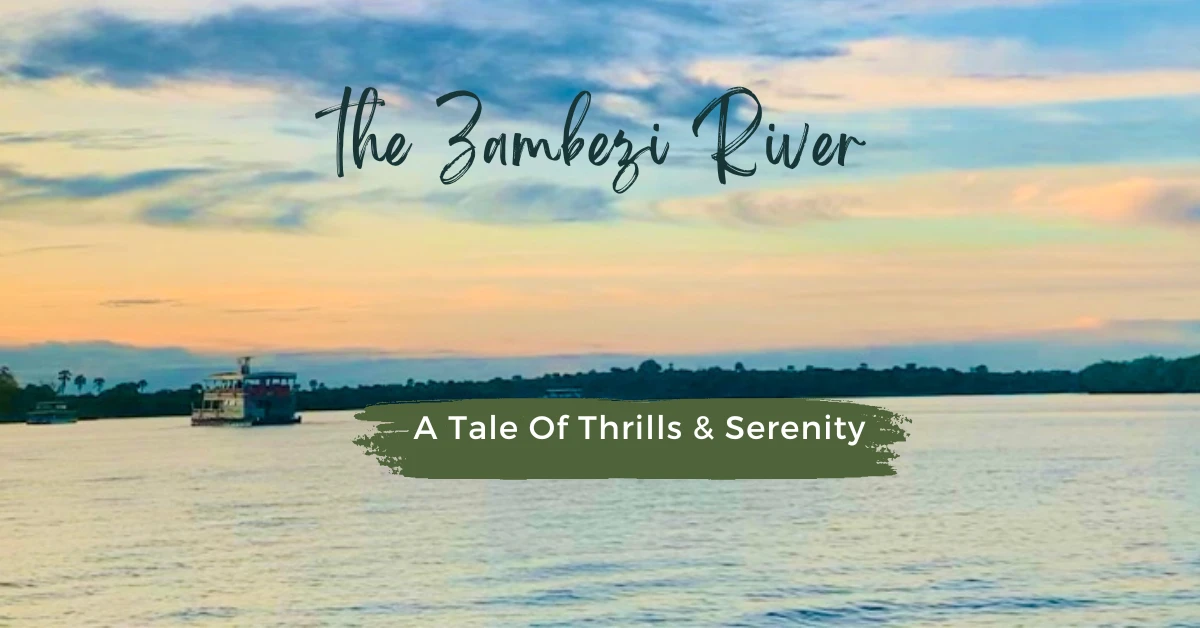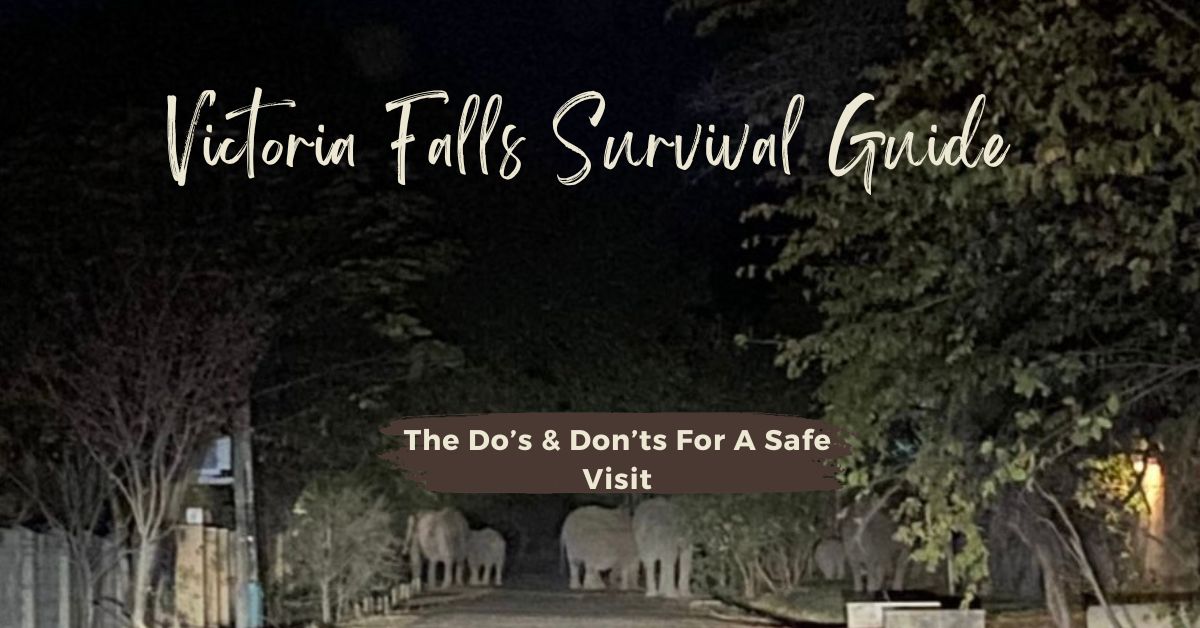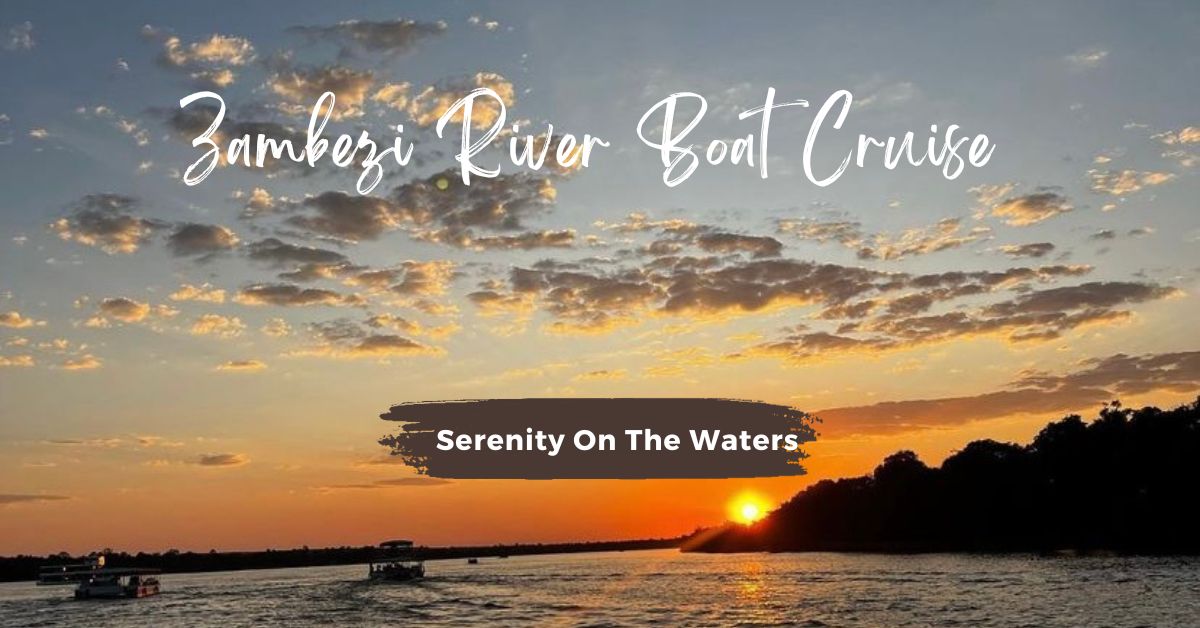The Zambezi River is a force of nature that has captivated explorers, adventurers, and wanderers for centuries. Snaking its way through six countries in Southern Africa, the Zambezi is the fourth-longest river on the African continent and one of the most iconic waterways in the world.
Its powerful rapids, thundering waterfalls, and lush riverbanks are home to a rich diversity of wildlife and plant species, making it a haven for nature enthusiasts and wildlife lovers alike.
For those seeking adventure, beauty, and breathtaking natural wonders, the Zambezi River is the ultimate destination, ready to be explored and discovered by the intrepid Zambezi Wanderer.
From the thrill of white-water rafting to the tranquility of a sunset cruise, the Zambezi River has something for everyone, and I am so excited to share it all with you.
History and Geology of the Zambezi River
The Zambezi’s watershed covers an area of 1.39 million square kilometers, making it the largest river basin on the continent. Perhaps most famously, the Zambezi is home to the majestic Victoria Falls, one of the seven natural wonders of the world. But its course is marked by much more than just this awe-inspiring landmark.
The Zambezi River begins its journey in the highlands of Zambia as a small spring in the remote Mwinilunga district of far north-western Zambia. It meanders westward as a small stream into Angola before returning to Zambia after 240km. The river then flows through the Barotse flatlands, transforming into a 25km-wide swamp in the rainy season.
The Zambezi narrows again before tumbling over the Ngonye Falls, cutting through the Caprivi Swamps, where it merges with the Chobe River. After reaching Victoria Falls, the Zambezi becomes a great watercourse 2km wide.
The Falls separate the upper and middle Zambezi Rivers and create zig-zag canyons before flowing through Batoka Gorge, where it has carved its way deep into ancient basalt. The Zambezi River passes over several waterfalls on its course through the Batoka Gorge, including the remarkable Masui and Songwe Falls.

Near the Batoka Gorge’s eastern end, the river is released into the broad Gwembe Valley, constructing Lake Kariba. From here to the Indian Ocean, it floods across broad flood plains, often splitting into several watercourses before depositing its waters into the ocean, some 2 700km from its source.
The river’s diverse geography includes swamps, floodplains, rapids, cascades, and gorges, creating a habitat for a wide range of plant and animal species. Among them are the endangered African wild dog and the iconic African elephant, both of which rely on the Zambezi’s waters for survival.
Countries In Which The Zambezi River Flows Through
The Zambezi River is a true wonder of the African continent. Spanning a length of 2,574 kilometers, it flows through six countries – Zambia, Angola, Namibia, Botswana, Zimbabwe, and Mozambique before emptying into the Indian Ocean.
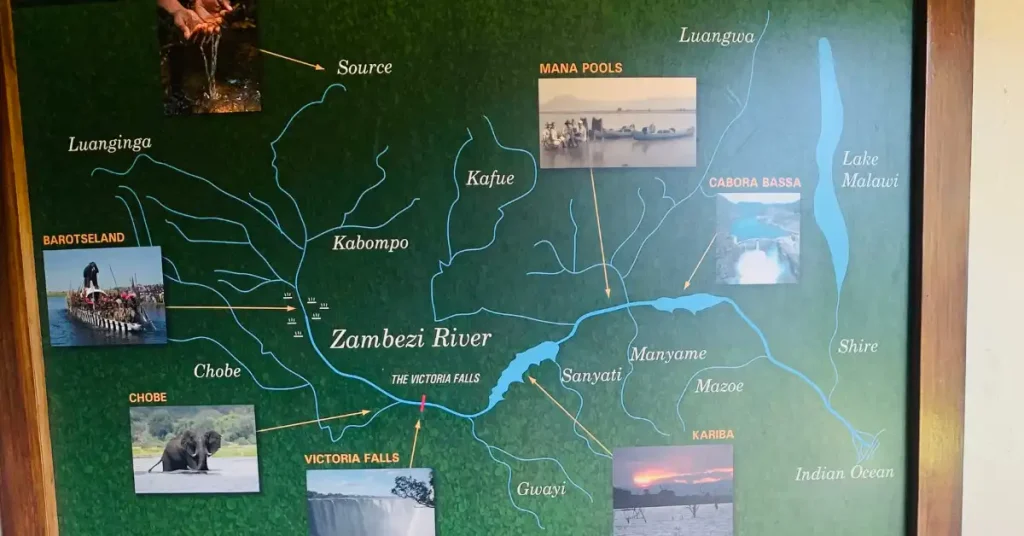
As mentioned earlier, the Zambezi river originates from the highlands of Zambia where the Mwinilunga District provides a source of fresh water that feeds the river.
From there, the Zambezi flows through Angola, Namibia, Botswana, Zimbabwe, and Mozambique, finally emptying into the Indian Ocean. Along the way, the river shapes the land, carving out deep gorges and canyons, and providing life-sustaining water to the diverse communities that call its banks home.
As the fourth longest river in Africa, the Zambezi is a vital resource for millions of people, supporting agriculture, fishing, and transportation. But it is also a source of beauty and wonder, inspiring countless artists, writers, and adventurers over the centuries.
So, whether you are looking to explore the Zambezi’s wild side, or simply relax and enjoy its peaceful beauty, there is no shortage of wonders to discover along this mighty river and each country offers a unique river experience that will surely create a lasting impression.
Zambezi River Water Levels
As the lifeblood of southern Africa, the Zambezi River is a dynamic and ever-changing natural wonder that commands respect and awe. The Zambezi’s water levels fluctuate dramatically throughout the year, with the rainy season from November to April bringing heavy downpours to the river basin.
During this time, the Zambezi swells to its maximum capacity, and the Victoria Falls turn into a thundering spectacle of water and mist.
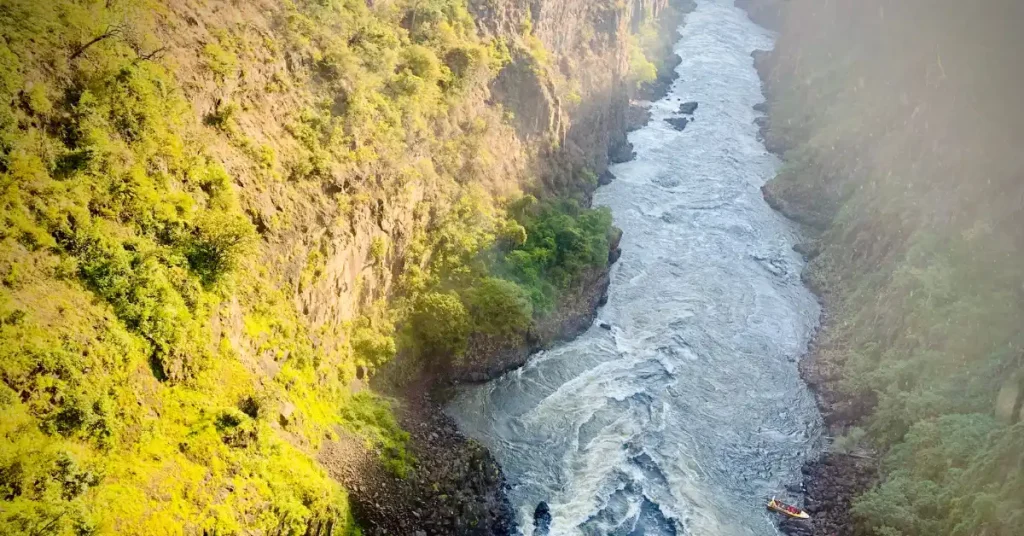
However, as the dry season sets in from May to October, the Zambezi’s waters recede, revealing the intricate network of sandbars and rocky outcroppings that lie beneath.
This is a fantastic time to explore the Zambezi’s diverse landscape on foot, as the riverbed becomes more accessible, and the flora and fauna take on a new dimension. However, visitors should not be deceived by the relative calm – the Zambezi River is always a powerful and unpredictable force of nature.
Even during the dry season, the Zambezi can surprise visitors with sudden surges of water and unexpected rapids, reminding us of the river’s raw and untamed nature.
Economic Development & Sustainability From The Zambezi River
The Zambezi River plays a vital role in the lives of millions of people and wildlife. It is not only a source of water but also supports hydroelectric power generation, agriculture, and tourism in the countries it traverses.
While this has brought tremendous opportunity and growth to the region, it has also presented challenges in terms of balancing development with the need for sustainability and environmental protection.
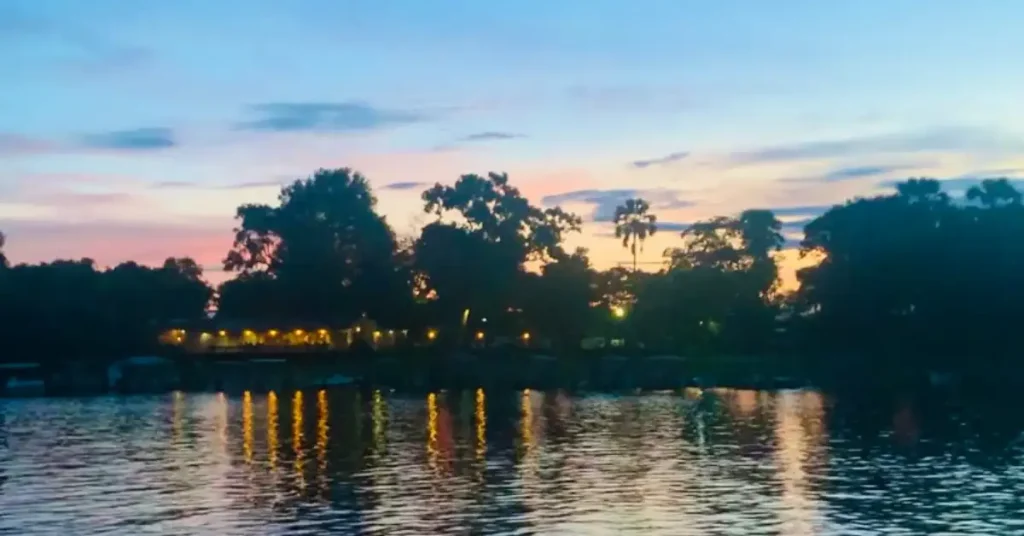
Careful management of the river’s resources is crucial to ensuring that its benefits are felt for generations to come. This requires a commitment to sustainable development practices that prioritize the health of the river and its ecosystems, alongside the needs of local communities.
Striking this balance is not an easy task, but it is essential if the Zambezi is to continue to be a force for economic growth and prosperity in the region without causing harm to its natural environment.
Despite these many challenges facing the river, pollution, habitat loss, and overfishing, conservation efforts are underway to protect this invaluable resource for generations to come.
Plant Life In The Zambezi River
As it winds its way through six different countries, the Zambezi River sustains a rich variety of plant species that have adapted to survive in its aquatic environment.
From the floating water lettuce that carpets the calm stretches of the river, to the towering elephant grass that provides a tasty snack for passing elephants, and the elegant papyrus with its feathery flower heads that forms a natural shoreline, the river is teeming with life.
Along the sandy banks, the acacia, mopane, and palm trees provide much-needed shade and help to stabilize the soil, preventing erosion and protecting the riverbanks from flooding. These trees also provide a home for a range of animals, from birds to monkeys, and offer a source of food for grazing mammals.

Despite the critical role that the Zambezi River and its plant life play in supporting a thriving ecosystem, human activities such as deforestation, farming, and urbanization pose a serious threat to its health and sustainability.
It is crucial that we take action to protect this precious natural resource and ensure that it can continue to support life for generations to come.
Animal life In The Zambezi
The Zambezi River is not only home to a diverse range of plant life, but also a captivating array of animal life. This iconic river is teeming with fish, crocodiles and hippos, which make up a large part of its aquatic wildlife.
The most famous of these is undoubtedly the African elephant, which is regularly seen on the banks of the river grazing on the abundant vegetation.
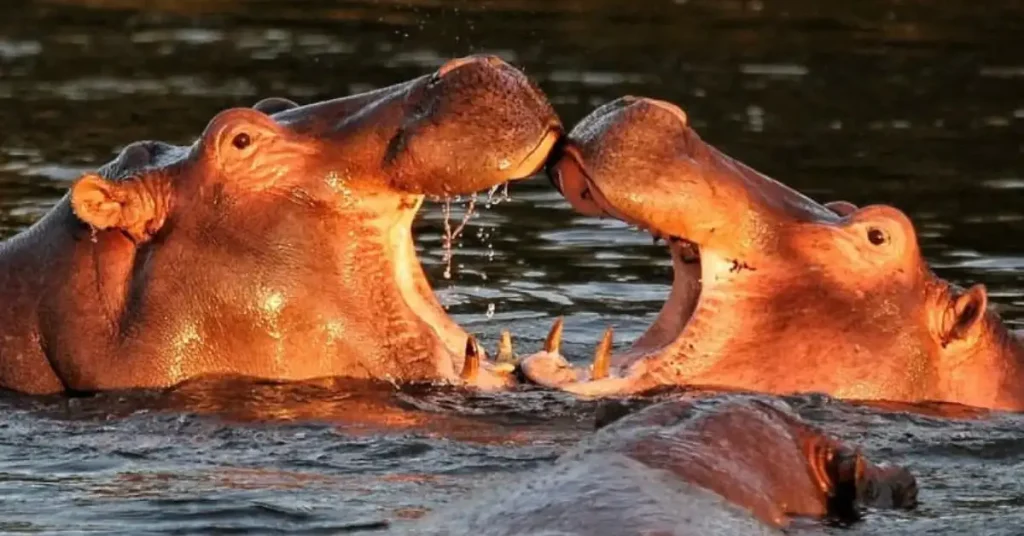
The river is also a thriving source of water for the African buffalo, whose huge herds graze in the grassy floodplains, and the elusive leopard, which can be seen hunting along the banks.
Other animal species found in the area include baboons, vervet monkeys, and warthogs, which all play an important role in the flora and fauna of the Zambezi.
One particularly striking sight is the magnificent African fish eagle, which can be seen perched in the treetops or swooping down to catch fish from the river.
But perhaps the most awe-inspiring of all are the resident Nile crocodiles, which can grow up to six meters long and are a constant reminder of the power of nature.
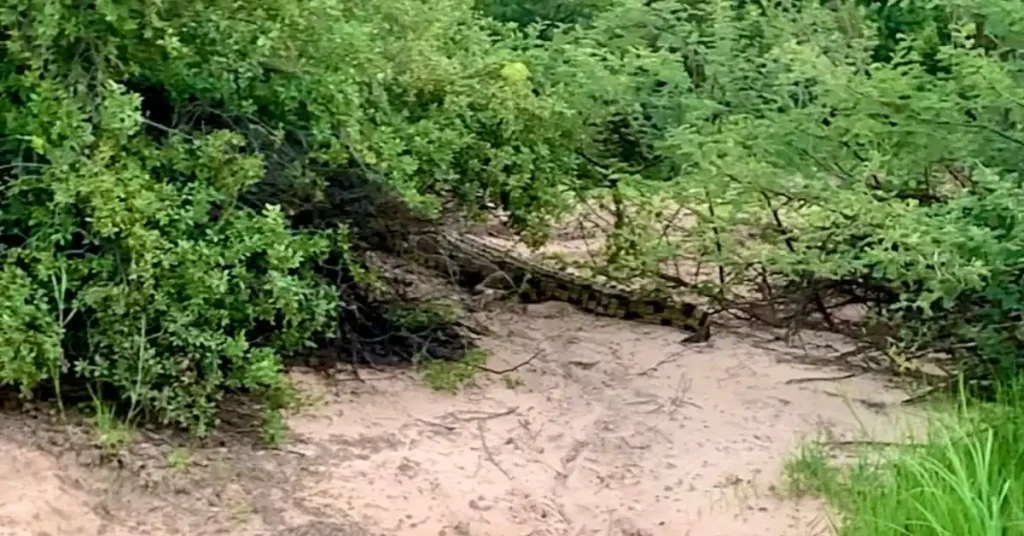
With such an abundance of animal life, the Zambezi River is truly a natural wonder and a testament to the importance of protecting our planet’s ecosystems.
Islands On The Zambezi River
While the Zambezi National Park is predominantly known for its unparalleled wildlife and nature-based activities, the area is also home to some of the most spectacular islands in Zimbabwe.
Chundu Island
Chundu Island boasts a stunning white sandy beach, shaded by lush natal mahogany, acacia albida, and water berry trees. The island is a paradise for bird enthusiasts and animal lovers alike, with a wide variety of species to be seen.
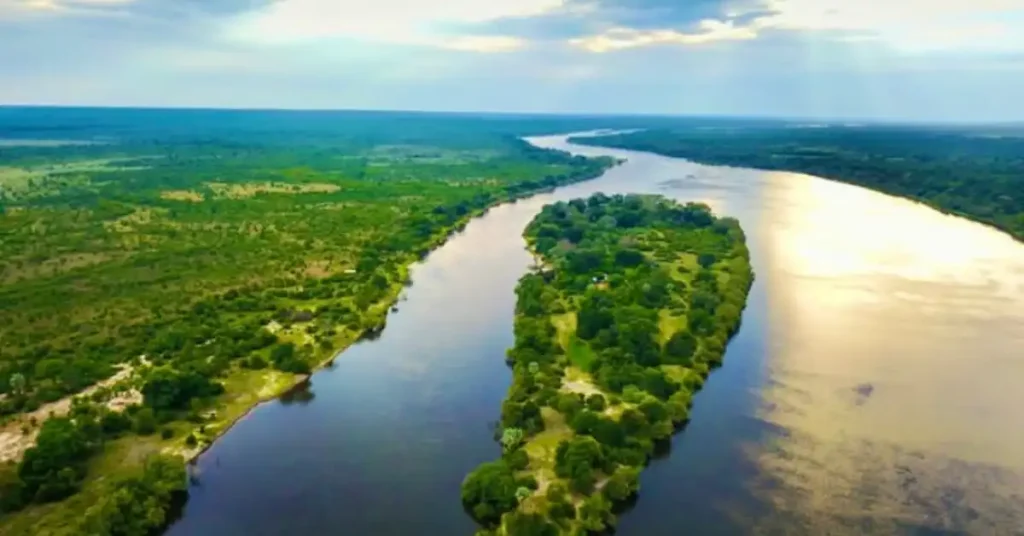
Lwando Island
Also known as Siloka Island or Long Island, Lwando island offers a diverse ecosystem, with marshy channels and heavily treed banks that are home to a rich array of flora and fauna. But that is not all, Lwando Island is also steeped in fascinating history, with stories of ancient kingdoms and tribal wars waiting to be discovered.
Canary Island
If you are a fan of birdsong, you would not want to miss Canary Island. This island is actually an extension of Lwando Island, but it is famous for its melodious canaries. The sweet music of these birds fills the air, creating a peaceful and relaxing atmosphere that is perfect for unwinding and reconnecting with nature.
Kalunda Island
Similarly, Kalunda Island, meaning “a small hump,” is a droplet-shaped island with a history of territorial disputes, now established as Zambian territory. In addition to its natural beauty, Kalunda Island’s rich cultural heritage plays a role in its significance and is definitely worth a visit.
Princess Elizabeth Island
Princess Elizabeth Island, formerly known as Siachikola Island, named after a previous resident, was renamed in honor of Princess Elizabeth’s visit in 1947 (The late Queen Elizabeth II) and is well-treed with deep-water channels on both sides, situated in Zimbabwean waters.
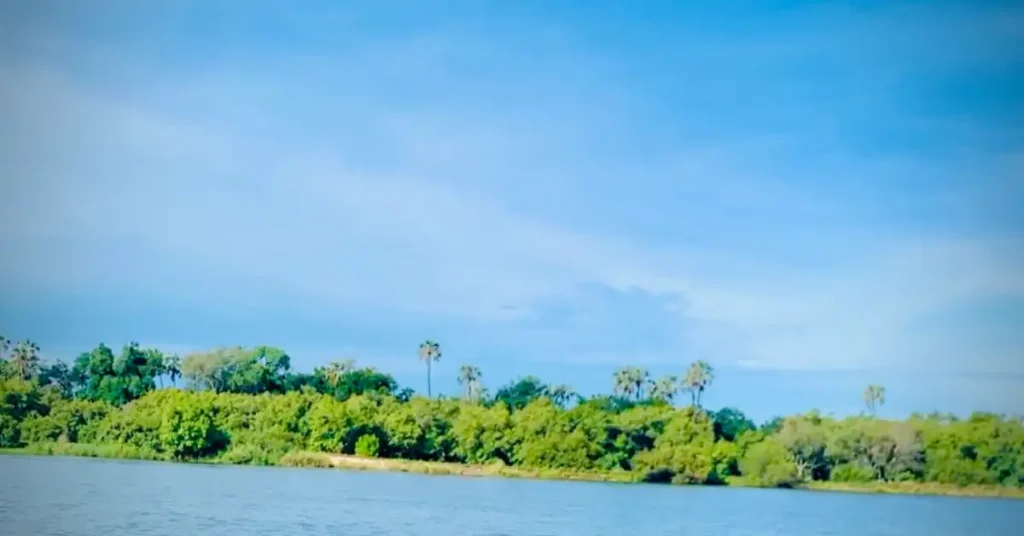
Overall, the islands in the Zambezi River offer a unique and unforgettable travel experience. Visitors can explore the natural beauty and rich cultural heritage of these islands while enjoying a peaceful and relaxing getaway.
Zambezi River Cultural Beliefs
The Zambezi river has long been seen as a sacred place by the people who live along its banks. They believe that it is home to powerful spirits and that it has the ability to cleanse and purify the soul. Many traditional ceremonies and rituals are carried out on its shores, with offerings made to the water as a sign of respect and gratitude.
In the Zambezi Valley, the local Tonga tribe’s mythology paints a vivid picture of the mighty River God, Nyami Nyami. Known to live in Lake Kariba, this serpent-like creature is said to measure three meters wide, though his length remains a mystery to all but the bravest of souls.
As he swims through the water, legend has it that the river stains red in his wake, a testament to his immense power and strength.
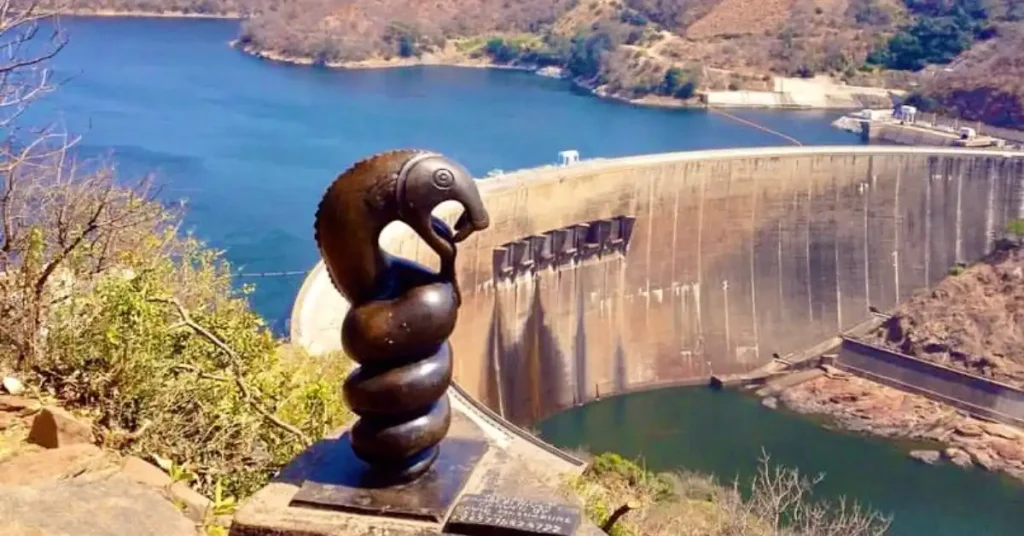
To the Tonga people, Nyami Nyami is a revered figure, embodying the spirit of the Zambezi and guarding over its waters. They believe that by showing him respect and offering him gifts, they can gain his favor and ensure the safety and abundance of the river.
For generations, the Tonga have passed down stories of Nyami Nyami to their children, ensuring that his memory and legend live on.
For some, the river is also a source of inspiration, with songs and poetry written in its honor. Despite the influence of Western culture, many people still hold fast to their beliefs around the river, passing them down through the generations.
From birth to death, the Zambezi is woven into the fabric of the lives of those who call it home, and its influence is felt in every aspect of their culture.
Activities On The Zambezi River
The Zambezi River is a playground for adventure seekers, and there’s no shortage of thrilling activities to enjoy. For those seeking an adrenaline rush, white-water rafting on the Zambezi is an absolute must. With rapids ranging from Class III to Class V, this is one of the most exhilarating rafting experiences in the world.
If you prefer a more laid-back approach, a Zambezi River cruise is the perfect way to relax and take in the beauty of the Zambezi. Sipping on a cool drink as the sun rises or sets over the river, you will have the opportunity to spot wildlife such as hippos, crocodiles, and a variety of bird species.
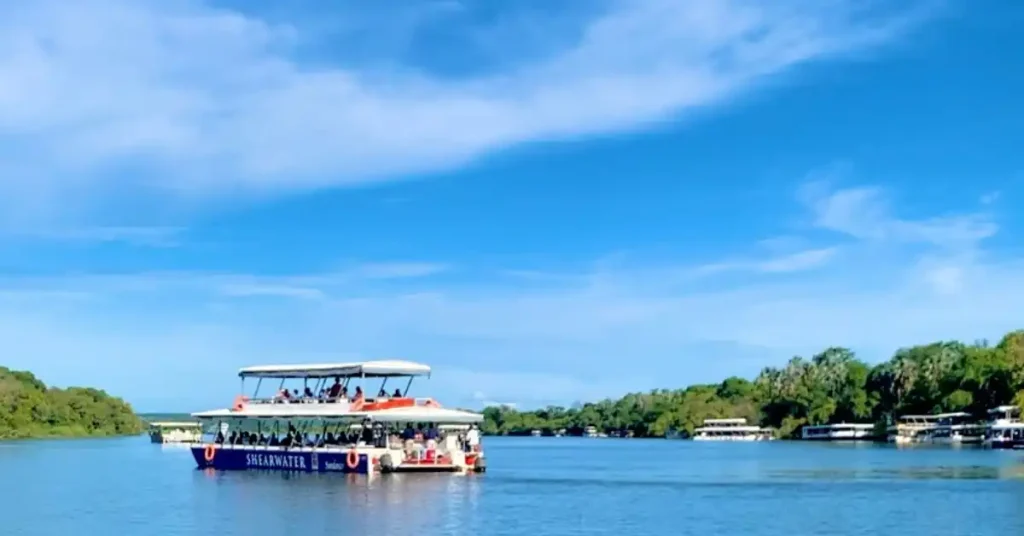
For the ultimate adventure, consider a multi-day canoe trip down the Zambezi, camping on its banks each night and experiencing the river in all its glory. And of course, no trip to the Zambezi would be complete without a visit to the majestic Victoria Falls.
Whether you are watching the falls from a helicopter, feeling the spray on your face from the Knife Edge Bridge, or taking a dip in Devil’s Pool, Victoria Falls is an unforgettable experience. So whether you are a thrill-seeker or a nature lover, the Zambezi River has something for everyone.
Conclusion
Having explored the mighty Zambezi River, it goes without saying that the river is a true natural wonder that captures the heart and imagination of all who experience its power and beauty.
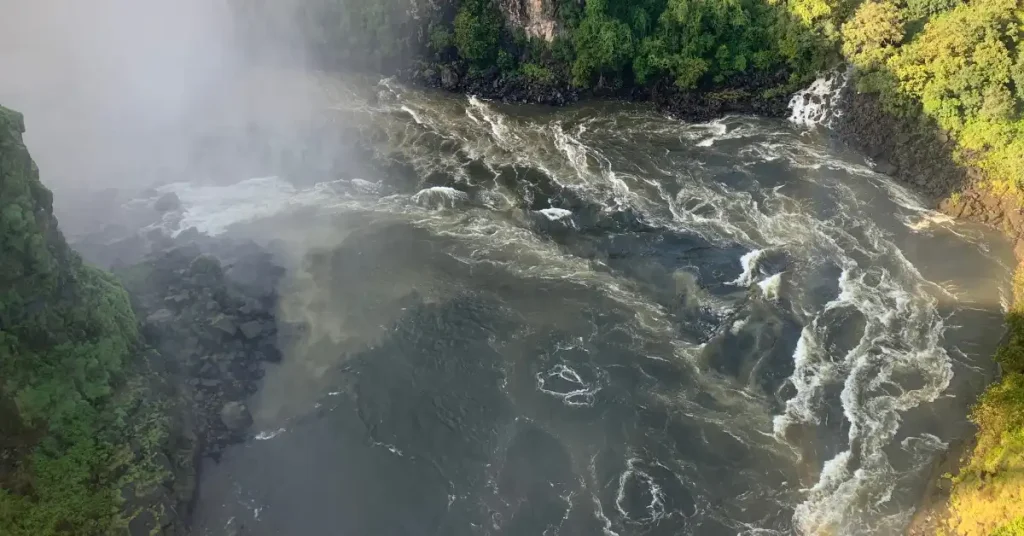
From the thrill of white-water rafting to the tranquility of a sunset cruise, the Zambezi offers a diverse range of activities that cater to all interests and levels of adventure.
Whether you are visiting Victoria Falls for the first time or returning to explore more of the river’s hidden gems, there’s always something new and exciting to discover along the Zambezi.
So what are you waiting for? Grab your camera, pack your bags, and let’s wander along the banks of this magnificent river together.

